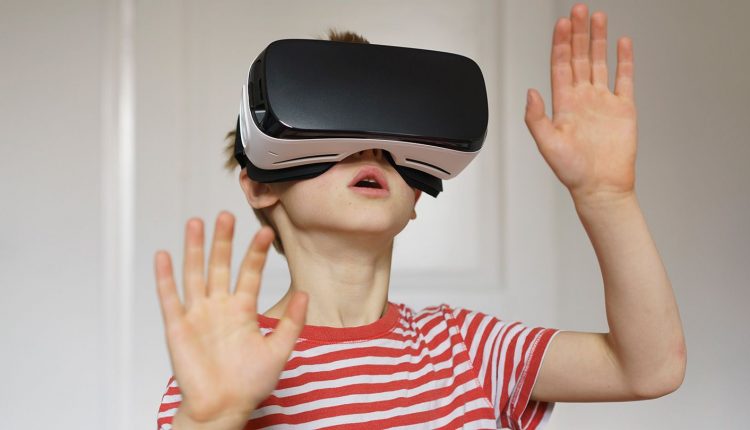Can Digital Actuality Assist Scale back Belly Ache in IBD Sufferers?
Experts are just beginning to understand how mindfulness can improve the lives of people with chronic diseases, including inflammatory bowel disease (IBD). Promising new research shows that virtual reality (VR) can be an extremely useful tool to help children and young adults practice mindfulness. Technology is becoming more and more available in children’s hospitals, and headsets for the home will expand access even further.
Researchers at Stanford University in California wanted to find out how VR technology could help children and young adults manage symptoms related to IBD. They focused on short sessions that focused on mindfulness and asked participants to rate their pain and anxiety before and after the session. They presented their results at the 2020 Crohn and Colitis Congress.
CONNECTED: Mindfulness meditation reduces IBS symptoms and anxiety, study results
The small study included 52 IBD patients aged 10 to 25, all of whom were treated for IBD in an outpatient department. They were asked to record their pain and anxiety before the session and then put on a VR headset. The meeting lasted only six minutes. First, users were immersed in a scene that helped them focus on their breathing. Her consciousness was then shifted to a meadow with a waterfall. With a little guidance, they focused their senses on different parts of the scene. At some point a butterfly landed on a flower, then rose again into the air and repeated the movement, drawing the person’s attention to the scene and reminding them of the pace of their breathing. For the latter part of the experience, the scene shifted to twilight and the aurora borealis moved across the night sky. Participants could see their breathing in front of them, creating the illusion that the temperature had dropped and again reminding them to focus on their breathing.
On average, participants said they felt half as anxious after the experience. The pain that some, but not all, participants experienced prior to treatment was reduced by an average of two-thirds.
According to Ana Wren, PhD, a clinical psychologist at Stanford Children’s IBD Center who led the study, the team was happy to see that VR-based mindfulness appeared to be effective in relieving pain and anxiety in young IBD patients, but it wasn’t . t the only information they found helpful.
“What pleased us most was the deep interest shown by the participants. They were so anxious to have better access to it outside of the clinic, and they had a lot of useful feedback on how they would like to use VR-based mindfulness as part of their IBD treatment, ”says Dr. Wren.
Participants felt that the intervention would be helpful in reducing and reducing anxiety about colonoscopies, laboratory tests, or IV fluids. “They really wanted it during or before any kind of bump, and that was the most interesting thing for us,” says Wren.
According to Stephen Lupe, PsyD, a clinical health psychologist at the Cleveland Clinic’s Institute of Digestive Diseases and Surgery, VR likely has a place in overall patient care. “For example, we can incorporate biofeedback. People can practice lowering their heart rate and then see that this is reflected in the VR images, e.g. B. slowing down a waterfall, ”says Dr. Magnifying glass.
In addition to improving a person’s attitude towards living with chronic illnesses, mindfulness has been shown to be an effective way to relieve stress, which is heavily linked to ulcerative colitis (UC) and Crohn’s disease, although stress does not cause either disease Crohn’s and Colitis Foundation. “Our brains and guts are very connected, and when you have more inflammation in your body, which can lead to more stress, it goes both ways,” says Wren.
According to Lupe, managing all triggers is key. “It’s like a mixer connected to a speaker. Stress is a clock face, and when enough clock faces are turned up – stress, environmental conditions, natural hormonal cycles in the body, diet – it is like the speaker is blowing or the person is caught in a torch. By managing the total volume of all of these dials, we can manage torches, ”he says.
According to Wren, while VR and mindfulness can benefit people of all ages, she and her team wanted to focus on how they could be used in a pediatric IBD center because the technology is already widespread in this setting and children tend to be Widespread are very open to using technology in new ways as it was born into the digital age. The intervention can also be carried out without a trained therapist, which further improves accessibility. “And it keeps their attention,” says Wren, a key factor in practicing mindfulness effectively.
Lupe notes that the way patients are treated is changing across the board, including with IBD.
“We understand that there is not only physical and only psychological. We are whole beings, and the interdisciplinary mentoring that works with a team of specialists from psychologists to nutritionists is how we will move things forward, ”he says.


Comments are closed.